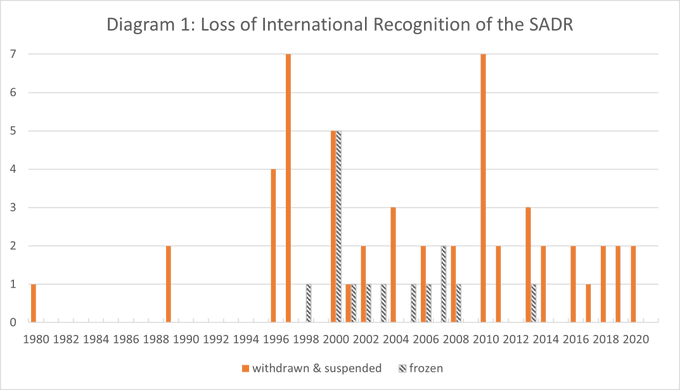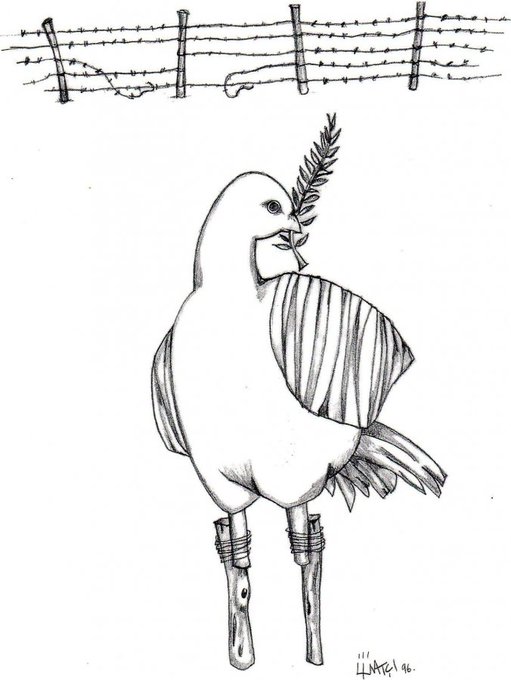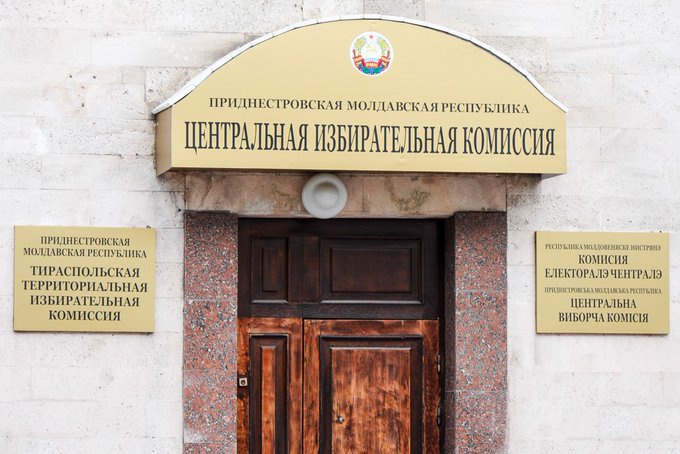Why Is Western Sahara Losing Recognitions?
Even though decolonisation is widely associated with the second half of the 20th century, it is not yet an issue of the past. The struggle for self-determination in the Saguia el-Hamra and Rio de Oro areas, better known as Western Sahara, speaks in itself. After having declared the independence of the Saharawi Arab Democratic Republic (SADR) on 27 February 1976, the Frente Popular de Liberación de Saguía el Hamra y Río de Oro (POLISARIO front) has been fighting for liberation during the last 45 years. Most recently, it caught in a war against Morocco that erupted on 13 November 2020. This violent conflict is just one element of its liberation struggle. Another element is SADR’s pursuit for recognition, also described as the ultimate goal for each entity seeking to be an equivalent member of the international society. Since declaring SADR’s independence, over 80 UN-member states have recognized it. However, this cannot hide away a fundamental problem. Starting from 1980 with Equatorial Guinea’s derecognition it has lost half of its previously gained recognitions.
The area of Western Sahara, colonised by Spain in 1884, is listed as a non-self-governing territory by the UN since 1963. Located in the partly desolate and unforgiving desert between Morocco, Algeria and Mauretania, its barren lands contain phosphate deposits, and coastal waters are rich in fish, both currently exported by Morocco globally. Since 1975 POLISARIO front has been administering six camps for displaced Sahrawi people and their descendants, located in Algeria and supported by aid. Estimations assume that between 100,000 and 165,000 people reside there. Besides the camps POLISARIO front also controls the so-called “liberated territory” east of the berm.
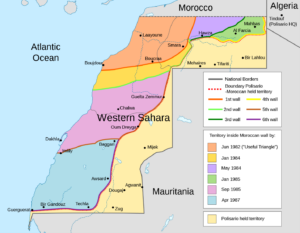
Image: Expansion of Moroccan walls in Western Sahara (Source: Rob984 CC BY-SA 3.0)
As stated above, recognition is of paramount importance for any entity seeking admission to the international community, irrespective of whether one follows a declarative or a constitutive view. The first interprets recognition as a compelling logical consequence of fulfilled statehood criteria. In the latter, only states are holding power to decide which entity can join their club. As different as these two concepts are in derecognition perspectives. This includes questions of whether derecognition is possible at all and, if so, what its effects are. Nevertheless, understudied derecognition practices are part of today’s international society and often linked to severe conflicts. Furthermore, it is essential to keep in mind that derecognition only relates to the relationship between the derecognising state and the derecognized subject.
In the reality of today’s international system, there is not a general answer fitting for all cases of recognition. While the conflict between the Republic of China (Taiwan) and the Peoples Republic of China (PRC) is a one of sole exclusivity of recognition claimed by both “Chinas”, leading to the unavoidable derecognition of one of them, this is not necessarily true for conflicts like the one between Israel and Palestine. Here both parties disagree on many aspects but do not deny each other’s right to exist in principle. Likewise, the conflict between Morocco and SADR is not one of absolute exclusivity. Although Morocco had left the African Union’s predecessor organisation after SADR became a member in 1984, both are now members – SADR since its foundation, and Morocco joining in 2017.
Countries recognising SADR, in general, recognise Morocco too. Nevertheless, the perspective of exclusivity is relevant, as well. Because the territory claimed by POLISARIO front is entirely within the one Morocco claims, full recognition of the latter leaves no alternative than to denying SADR’s existence. Therefore, many UN-member states do not make explicit statements concerning SADR but support Morocco`s claims, like, for instance, Bahrain and the US did in December 2020.
Although it may be hard to find accurate information about the SADR’s (de-)recognition status, the Universidade de Santiago de Compostella lists an overall number of 84 recognitions since 1976. Of these documented acts, 39 states have frozen, suspended, or withdrawn their recognitions until today, with currently exposing no indications of a reversal. It is essential to note that the termination of diplomatic relations is not equivalent to a withdrawal.
Starting in 1976 with ten recognitions and then progressing with a further increase until the mid-1990s, only about ten additional ones were recorded since 1994, including four by Malawi, which withdrew them in 2001, 2002, 2008 and 2017. For all derecognitions received till March 2021, the years with the most extensive changes are 1997, 2000 and 2010, while there is one individual case in 1980 and the ones by St. Lucia and the Solomon Islands in 1989. These three most comprehensive years will be in focus below.
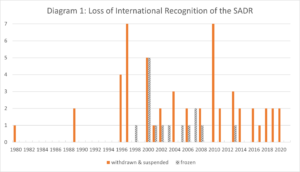
Image: The derecognition of Western Sahara (Sources: primary data basis Universidade de Santiago de Compostella, supplemented for the individual cases Chad 1997, Costa Rica 2000, Tuvalu 2000, Afghanistan 2002, Malawi 2002, Sierra Leone 2003, Albania 2004, Ecuador 2004, Burundi 2006, Chad 2006, Seychelles 2008, Barbados 2013, St. Vincent and the Grenadines 2013 and Zambia 2018)
Various factors influence derecognition. Gëzim Visoka summarizes them as the following five: geopolitical interests, economic benefit, domestic political dynamics, conflict resolution and statehood capacity. Nevertheless, all of them include various expressions and are not necessary conditions. In contrast to Visoka, Emile Badarin includes some more specific elements such as symbolism related to derecognition and the international consensus level.
In 1997 four out of the seven derecognising countries were West African ones, complemented by two Central African states and El Salvador. Compared to the breadth of potential derecognising countries, a regional focus is discernible. However, there are other important reasons. Benin, for instance, has given the following reasoning: SADR’s recognition was seen as a remnant of the Cold War; security-related interests and that SADR’s derecognition would ideally prevent a further Balkanisation of Africa. Furthermore, the necessity of SADR’s recognition was contested as the Houston Agreement foreseeing a referendum was signed in 1997.
2000 was the year with the highest combined number of withdrawals and freezings of diplomatic relations. The regional factor played a role again since four of the five derecognising states were so-called micro-nations from Oceania. As being challenged by small states diplomacy, these countries have, on several occasions, used recognition as a bargaining resource. Nevertheless, in Vanuatu’s case, it is also possible to link the derecognition decision to the Houston Agreement’ conflict resolution framing. The same argument also applies to India. Nevertheless, economic benefits could also be a factor for India’s decision since it signed the economic agreement with Morocco in time proximity. For the five Latin American countries that froze their recognition, related factors seem to be relevant. For instance, Nicaragua and Honduras were referring to the referendum and, in Nicaragua’s case, to the strengthening of economic relations with Morocco.
Five out of the seven countries which derecognised in 2010 were Caribbean ones. This regional factor is especially relevant since Morocco is investing a lot in efforts to cooperate with the Caribbean Community (CARICOM). For instance, it supported some member states with humanitarian aid in the years after the derecognition. Even if the direct consequence is not beyond doubt, many other links are traceable. Just like in Burundi and Guinea-Bissau, many in the Caribbean region support Morocco’s so-called autonomy initiative, linked to conflict resolution and international consensus. The close ties between Morocco and the CARICOM started at the end of the 1990s and include, for instance, cooperation concerning the energy industry and water management.
Morocco is actively involved in derecognition campaigns. It has used economic incentives and diplomatic bribery to reach these goals. Partly this could be observed in the years described above. Other factors, such as SADR’s (lack of) qualifications to statehood criteria, have not played a dominant role, at least in the presented cases. Nevertheless, one may still wonder whether different tipping points related to international consensus exist. These tipping points thereby describe the situations in which an assumed majority of the relevant others’ opinion leads to the inevitable appearance of its own decision to derecognize. Therefore, the factor of international consensus could contribute to a chain-reaction.
Based on the looming derecognition-trend, one may conclude that SADR’s perspective for the future becomes meagre: every single act of questioning sovereignty by approving Morocco’s or freezing SADR’s is a sign of shifting sides. The loss of SADR’s de jure recognition combined with POLISARIO front’s role as primarily a government-in-exile with deficiencies of possessing empirical sovereignty jeopardises its perspectives even more. Therefore, SADR’s overall viability is rapidly shrinking. This process could only be stopped by a U-turn made by many actors, which is currently unforeseeable.
Author: Tina Rosner-Merker


